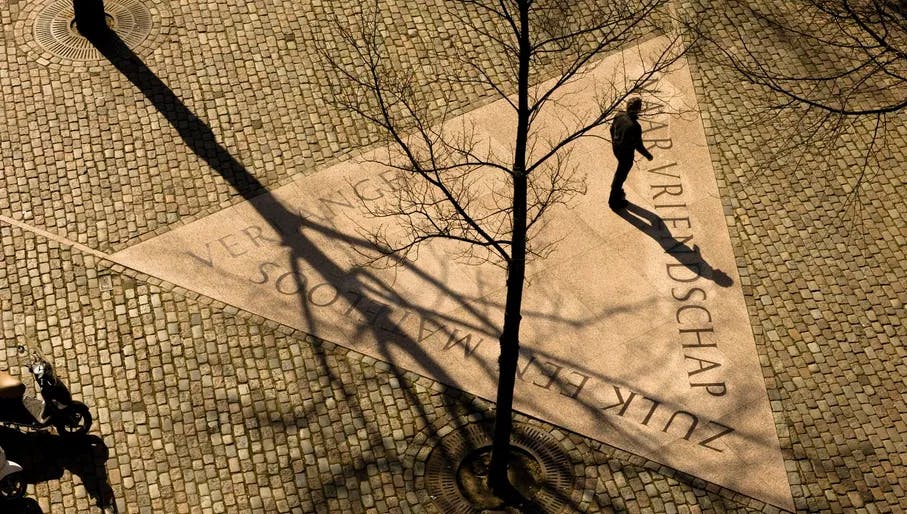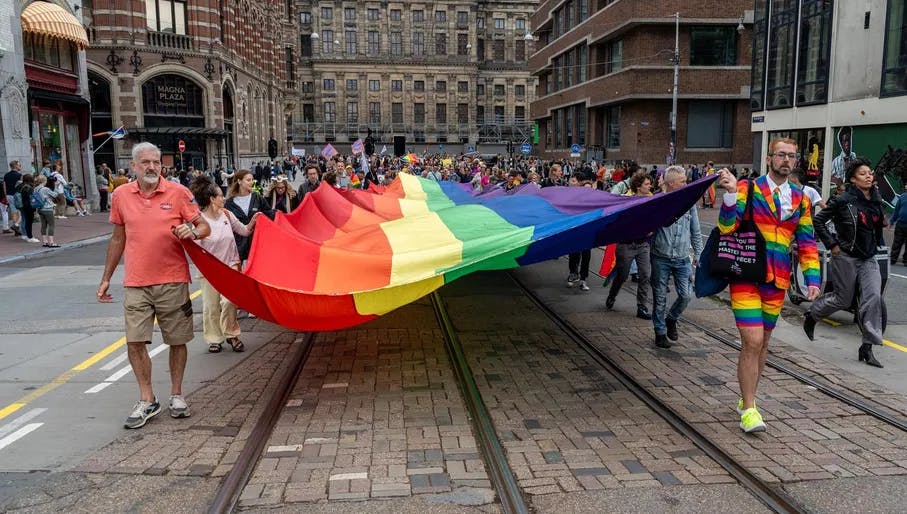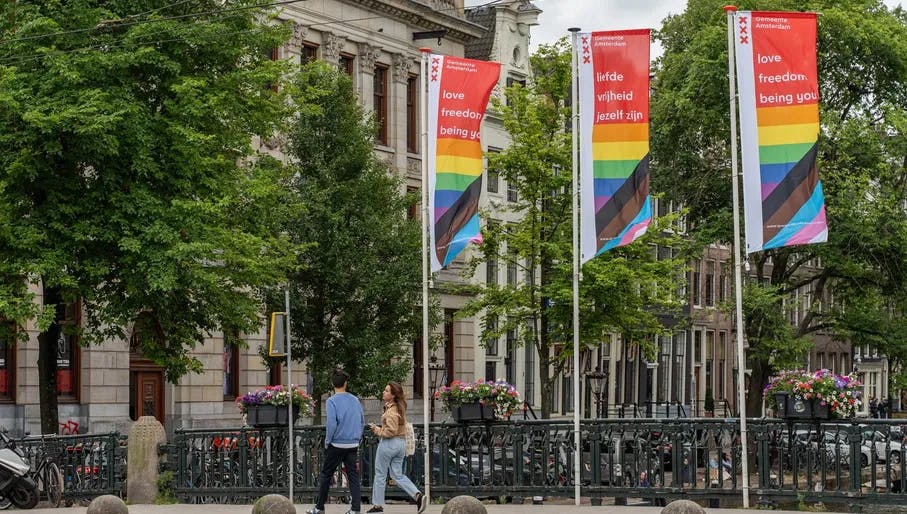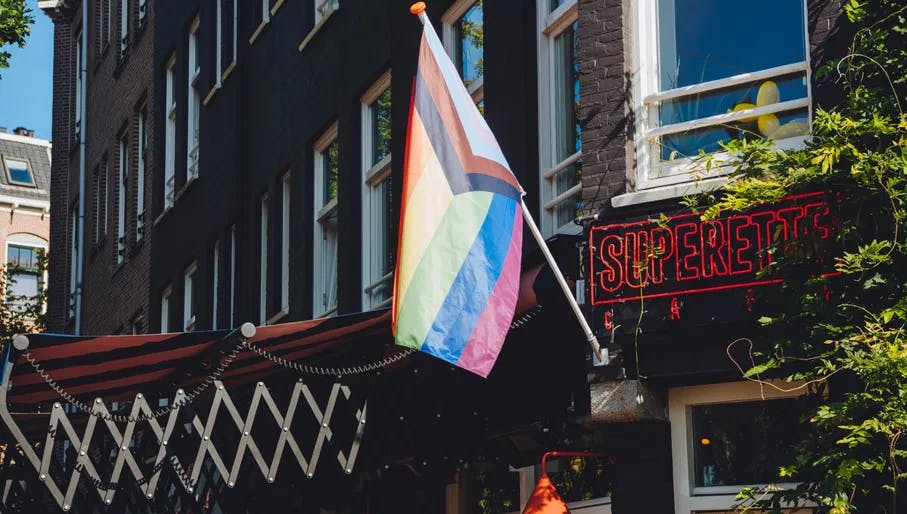
Cultural tips for Pride Amsterdam 2025
11 July 2025


1946: The COC organisation (website in Dutch) was formed. It has since been working towards emancipation for the entire LGBTQI+ community; promoting safety, visibility, events and fighting discrimination. Powered by around 85 volunteers, the organisation remains strong and active throughout Amsterdam.
1980s-1990s: Amsterdam's gay scene burst to life as bars, clubs, restaurants and shops began to open up. The openness and diversity of these institutions and businesses helped give LGBTQI+ people a sense of community as as meeting places. And many of these same institutions still exist in Amsterdam today.
1987: The unveiling of the Homomonument, which was the world's first tribute to the gay and lesbian people who lost their lives during World War II. It also commemorates all those oppressed and persecuted because of their sexuality outside of wartime. This world-renowned memorial of LGBTQI+ remembrance lies beside the Westerkerk, taking the shape of a triangle on the bank of the canal. Its three points are symbolic: one corner points towards the National War Memorial on Dam Square; another points across the canal to the site of the Anne Frank House; while the third corner points towards COC Amsterdam. It remains the largest monument in the world dedicated to homosexuality.

1996: The first edition of Amsterdam Gay Pride. It has gone on to become one of the most important Pride events in the world, and remains unique as the only one to be centred around a boat parade rather than a street parade. As its centrepiece, the Canal Parade draws upwards of 400,000 visitors annually into the heart of Amsterdam both to participate and watch.
1998: During the 1998 edition of Amsterdam Gay Pride, the city hosted the International Gay Games. This is the largest LGBTQI+ sporting and cultural event globally and takes place every four years. The 1998 Gay Games in Amsterdam featured 13,000 participants, and it was the first time the event had been hosted outside of North America. The games also helped formally establish the Roze en Blauw (Pink in Blue) police unit – a special unit of the police force dedicated to fighting hate crimes and violence directed towards LGBTQI+ people.
1998: Pink Point was established as Amsterdam's official LGBTQI+ information kiosk, situated next to the Homomonument on the Westermarkt. Pink Point provides information on the Homomonument, as well as general information on LGBTQI+ life in Amsterdam. Staffed by friendly and knowledgeable volunteers, it presents a wide range of information and flyers from local organisations.
2001: This was the year the Netherlands became the first country in the world to legalise same-sex marriage. On 1 April 2001, the first four same-sex couples were married in the city by the then Mayor of Amsterdam, Job Cohen.

2001-2010s: Amsterdam is a city committed to the LGBTQI+ community, with a diverse range of LGBTQI+ neighbourhoods, and the 21st century welcomed several changes to illustrate this, from gender-neutral bathrooms to queer-focused music and film festivals organised by and for the community. Across the city, many cafés hang out the rainbow flag – whether they're an LGBTQI+ bar or not – to support one of Amsterdam's largest minority groups.
2023: Due to a range of new initiatives and an increasing need for representation from across the LGBTQI+ spectrum, Amsterdam developed its annual Pride festival into a two-week-long program celebrating the diversity of the LGBTQI+ community. It kicked off the proceedings with a focus on promoting equality and the inequality of opportunity, while the week following included events like the Canal Parade, and a focus on emancipation and celebration.

2025: Pride remains in full swing today, with global Pride month kicking off in June yearly. And its importance only continues to grow, making Pride Amsterdam so much more than just another party. While Amsterdam has long been a haven for the LGBTQI+ community and symbolically been considered the gay capital of Europe, it's easy to forget that beneath the colourful celebrations in the Dutch capital, rights for LGBTQI+ people remain under threat both at home and worldwide.
With many countries still persecuting homosexual and transgender people, with the latter's rights particularly under fire in media and by governments, Pride continues to look to its early beginnings as a protest. What began as a means to stand up for solidarity and unity, even in the face of danger, remains as such – and though Pride Amsterdam is a very good time, it's an important reminder both for participants and observers that the pursuit of safety and equality isn't complete until everybody, both here and worldwide, is equal.